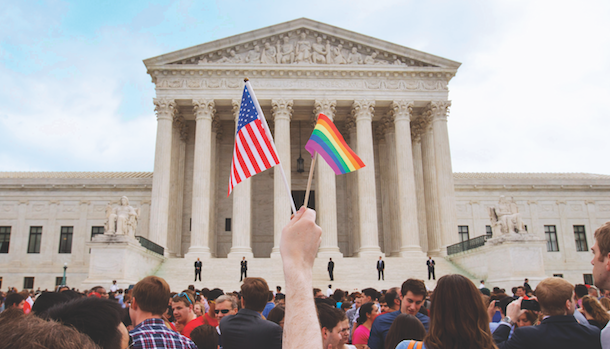Utah Judge Asked to Toss Out Internet Speech Law
By JENNIFER DOBNER
SALT LAKE CITY – Utah’s American Civil Liberties Union and a coalition of booksellers, media companies and artists have asked a federal judge to permanently block a 6-year-old state law that restricts constitutionally protected speech, such as gay rights, on the Internet.
The groups sought a permanent injunction Wednesday in Salt Lake City’s U.S. District Court.
Passed in 2005, the law altered existing Utah statutes related to speech that could be considered harmful to minors, expanding its reach to include Utah-based Internet content providers and Internet service providers doing business within the state, even if they’re based elsewhere.
The ALCU and the coalition first sued over the restrictions in 2005, and a temporary injunction issued in 2006 has blocked any enforcement.
The law requires that content providers segregate and label through a ratings system any material that could be considered harmful. The ACLU and its coalition partners contend that could include art, photography, and information about sexual heath and gay rights.
“Plaintiffs fear prosecution under the challenged statutes because some material they host, generate or provide – while entirely constitutionally protected as to adults – could be considered `harmful’ to minors,” attorneys for the ALCU wrote in papers filed with the federal court.
ACLU Legal Director Darcy Goddard said the law’s restrictions are overly broad and that similar laws in other states have been struck down by the courts as unconstitutional.
As a plaintiff in the lawsuit, the ACLU was concerned about information on its own site about abortion laws, pornography and other material that some would argue is not suitable for minors, Goddard said.
The law also fails to differentiate between material that might be appropriate for minors of different ages, “thus requiring websites to restrict access by a 17-year-old to material that is entirely appropriate and not `harmful’ to her, but that may be inappropriate and `harmful’ to an 8-year-old,” court papers state.
“You’d have to be able to predict everybody that would come to your website, which is impossible,” said Goddard, adding that other states have passed legislation to address the content access issue that does not treat on constitutional speech rights.
The Utah attorney general’s office didn’t oppose the temporary injunction, as state lawmakers were expected to go back and address the constitutional concerns raised through the lawsuit, Goddard said. Some changes were made in 2007, but they failed to address the lawsuit’s concerns.
Attorney general’s spokesman Paul Murphy said the office believes the ALCU and other plaintiffs have exaggerated the impact the law may have on protected speech.
“The Utah attorney general’s office believes the law is sound and will protect children from harmful material,” Murphy said in a statement.
Murphy noted that a judge had already tossed out two of the four original issues raised by the ALCU and its partners. Additionally, Murphy said a judge had denied legal standing to six of the lawsuit’s 14 original plaintiffs.










